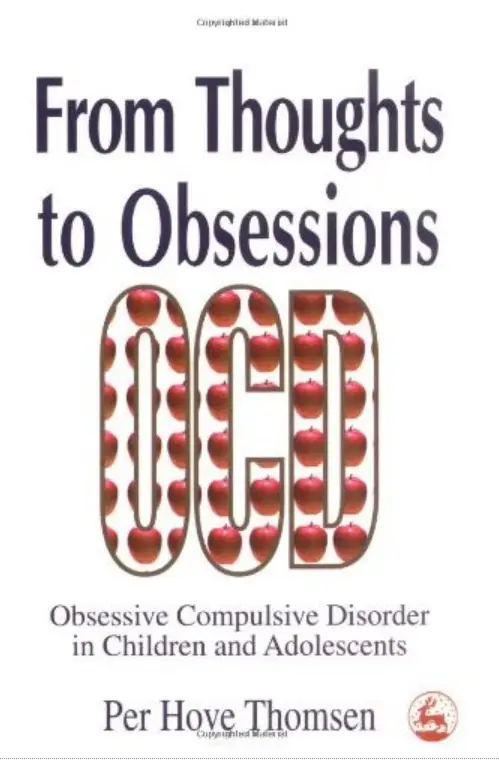Why do you feel this way
Why Am I Feeling This Way?
Bill has been a top performer in his workplace for the past two years. However, for about a year now, things have changed for him.
Bill feels like he is on a plateau, and he cannot determine why.
He does not know what he wants anymore and feels like he is just going through the motions.
Bill feels disengaged.
Physically, despite his 7-hour sleep daily, Bill always feels tired. He also has daily bouts of headaches and body pain. He had this checked by his doctor, and was told he's fine but must be really stressed.
And this is true…
Bill feels stressed most of the time.
He feels stressed at work and at home.
Bill's performance at work is deteriorating. His headaches and body pain frequently make him late for work, negatively affecting his output and performance. His supervisor often reprimands him for this, adding to his stress.
Bill often blames others for his poor performance. He blames his supervisor, his co-workers, and even his family.
At home, he becomes stressed out by his wife's nagging, which frequently results in lengthy and stressful arguments. The noise his children make while playing also easily irritates him. That is why, when Bill is at home, he avoids them entirely by spending the majority of his time in his office rather than with his family.
Ironically, his desperate need for a space to breath makes Bill feel guilty. He loves his family so much, yet he doesn't want to hurt their feelings by lashing out at them.
Bill cannot understand what is happening to him and often asks himself: "Why am I feeling this way?”
There is a lot of 'Bill' in all of us!
How about you? Can you relate to what Bill is going through?
Do you often feel tired and disengaged feeling as if you are just going through the motions?
Do you often find yourself easily irritated, angered, and frustrated?
Do you find yourself stressed out and out of balance in your work, health, and family life?
And do you, like Bill, often find yourself asking: "Why am I feeling this way?
If you answered 'yes' to two or more of the questions, then like Bill, you might need to develop your Emotional Self Awareness.
What is Emotional Self Awareness, and how can it help You?
Emotional Self-Awareness is defined as the ability to recognise your feelings, differentiate between them, know why you are feeling them, and recognise the impact your feelings have on you and those around you.
The MIT Sloan Management Review states that emotional self-awareness is one of the most critical competencies a person should develop. Emotional self-awareness enables a person to know where their natural inclinations lie and use this knowledge to boost or compensate for them. The University of Pennsylvania conducted a study that established a link between self-awareness and a variety of positive workplace changes, including the following:
• 100 percent reported an increase in workplace effectiveness.
• 79 percent mentioned improved workplace relationships.
• 86 percent reported an increase in their capacity to recognise and manage their emotions.
• 81 percent attributed a decrease in stress to increased emotional self-awareness.
Another study has also proven that individuals with a clear view of themselves are more confident and creative. They make more informed decisions, form stronger bonds, and communicate more effectively. They are less prone to deceit, fraud, and theft. They are more productive and, as a result, receive more promotions.
Indeed, emotional self-awareness helps you become a better version of yourself. When you develop this competency, you will:
• Know which emotions you are feeling and why.
• Realise, in the moment, the links between your feelings and what you think, do, and say.
• Recognise how your feelings affect your performance.
• Be able to articulate your feelings and appropriately express them.
• Be able to tell, in the moment, when you are getting upset.
So how do you develop emotional self-awareness? You can strengthen this competency by doing the following actions:
• Regularly check in on your feelings. During the day, schedule brief but frequent check-ins on what your body might be feeling, and check in on your emotional state as well.
• If you find yourself clenching your teeth, tensing your shoulders, feeling worn out or worn down, stop and ask yourself what your body is trying to tell you – are you feeling strained? Stressed? Anxious? Fearful? Overwhelmed? Discouraged? Burned out?
• Name your emotions and connect them specifically to a source or to a situation, concern, or issue.
• "Listen" to what your emotions might be telling you in that moment.
• Use the information that bubbles up from inside, listen to your intuition to gain insight that could guide you in dealing with the issue or challenge.
• Take the time to be introspective, to listen to that quiet inner voice. Put aside some of your goal-oriented activities and think. Take long walks, know your core values, and stop thinking of your emotions as irrelevant or messy. Our emotions are essential sources of valuable information.
ConclusionIndeed, just like Bill, you can move from a feeling of entrapment to one of fulfilment. You can shift from feeling stressed to feeling refreshed, from a sense of confusion to one of clarity, and from a state of uncertainty to complete certainty.
All you need to do is develop your Emotional Self-Awareness
"Like an ability or a muscle, hearing your inner wisdom is strengthened by doing it." - Robbie Gass.
So, are you ready to make the shift you need to have the life you want?
We Are Here to Help
At People Builders, we have a team of expert trainers and coaches who can help you in develop your Self-Awareness. Contact us today for a quick chat to see how we can partner with you to train and coach you and your team.
Contact us today for a quick chat to see how we can partner with you to train and coach you and your team.
If you are interested in becoming certified to be a trainer and coach in Social and Emotional Intelligence, Applied Neuroscience, or Extended DISC, go to our People Builders Institute website.
Contact us to see how we can partner with you to bring out the best in your people.
I need help with:TrainingCoachingFacilitator or SpeakerEmotional IntelligenceLeadership DevelopmentHuman Resources SupportBecoming A People BuilderI'm not sure
We hate SPAM. We will never sell your information, for any reason.
"I’m Sorry You Feel That Way" and Other Gaslighting Subtleties
In an internet search for “I’m sorry you feel that way,” the first link that popped up speaks directly to one motivation: “. ..a quick way to use the correct apology language to end an argument without having to admit fault” (Forsythe, 2021).
..a quick way to use the correct apology language to end an argument without having to admit fault” (Forsythe, 2021).
As we well know, particularly in the United States, we live in a society of legal liability fear, a constant worry of being sued. Yet these attempts to avoid lawsuits often cause further psychological harm in the lack of accountability, responsibility, just consequences, and a sincere, meaningful apology. The “I’m sorry you feel that way” approach, along with avoiding an argument in lieu of admitting fault, is good old fashioned gaslighting.
What’s Behind the Harmful Response?
It’s hard to miss the massive transformation our civilization is facing since the 2019 pandemic exposed global wounds festering just below the surface. We have continued to layer an existence on top of centuries of harm, trauma, and terrorism. The evidence is clear all around us, yet so many people remain in denial about two painful things exposed in this pandemic that humans have in common: harm and grief. So why do we continue to harm when we know how much harm hurts?
So why do we continue to harm when we know how much harm hurts?
Addressing the Harmful Response
Gaslighting subject matter experts caution against addressing the “I’m sorry you feel that way” response with any reply because it indicates engagement and incites further gaslighting from the abuser.
Gaslighting, an informal term that originates from several literary and entertainment sources—including, Gaslight, the 1940 British psychological thriller based on the 1938 Hamilton play Gas Light, and the 1944 film Gaslight—is a form of psychological abuse through means of verbal, written, and/or physical actions that causes the recipient to question their experiences and reality.
In decolonizing research, gaslighting falls under the manipulations of a colonized ideology, where maintaining control and dehumanizing others ranks above being accountable, equitable, and contributing to psychological wholeness and well-being.
One solution to address sorry gaslighting is to employ self-awareness and comprehend the positionality of the psychological abuser.
Meaningful Actions for Recipients of “Sorry” Gaslighting
As the recipient of sorry gaslighting, attempts to silence and invalidate you never work. It can actually create further animosity and an unwillingness to engage with the gaslighter. And on a deeper level, if the concern is ongoing, the psychological harm and frustration can avert your attention to unhelpful thoughts.
Seek support from qualified peers, mentors, or psychological professionals who can provide specific steps and practices with follow-ups as you learn to navigate through your experience. This support should be relevant to the social changes we are experiencing on a global level, so make sure the qualified individuals themselves engage in continuous learning and decolonized self-development.
Stopping Sorry-Not-Sorry Gaslighting
Non-apologies do more harm than any good. The premise behind them is to deflect, pretend to apologize, and ultimately win the disagreement merely by placing blame back on the individual or group making the initial concern. This thinking and behavior not only dismisses the concern, but it attempts to invalidate it and terminate any further discussion.
This thinking and behavior not only dismisses the concern, but it attempts to invalidate it and terminate any further discussion.
Sorry gaslighting, instead of silencing a rebuttal, actually creates a deeper issue. Any qualified medical professional will tell you to clean a wound thoroughly before bandaging and to follow up on the wound over time to ensure it is healing properly.
So, when someone raises a concern, letting that concern become infected and dismissed with sorry gaslighting, only exacerbates the issue. A better practice is to inquire why the concern exists and to address the disagreement with a focus on finding a meaningful solution.
Since recipients of this sorry gaslighting are not silenced, but rather psychologically harmed, users of the “I’m sorry you feel that way” language should consider asking themselves why they feel the need to provide this abusive response.
The insensitivity of choosing to gaslight rather than to be conscientious and thoughtful enough to ask why, lies in the lack of self-awareness and self-inquiry to address control issues and avoidance of apologies. The sender could consider how they would feel if someone chose to sorry gaslight them.
The sender could consider how they would feel if someone chose to sorry gaslight them.
Here are some points to consider next time you feel compelled to use your power dynamic to sorry gaslight:
- Ask yourself: Why you are avoiding addressing the concern presented to you?
- Rethinking your sorry gaslighting response, instead perhaps draft an email and ask a trusted peer, colleague, or mentor to take a look before sending it, especially when it may be a sensitive or triggering concern.
- If you are courageous, explore why you felt challenged, and the need to avoid the concern. Beyond any bias, is there any truth to the concern? Thoughtful people rarely bring concerns without substance, so what are you missing or not seeing in your interactions with this individual or group?
- Seeking a qualified therapist or psychologist can help you understand why you sorry gaslight, and can direct you towards meaningful interpersonal interactions.
Gaslighting is psychological abuse that creates harm. Learning why you engage in this abuse and how you can stop harming others can lead to meaningful lived experiences.
Learning why you engage in this abuse and how you can stop harming others can lead to meaningful lived experiences.
To find a therapist, visit the Psychology Today Therapy Directory.
Facebook image: Krakenimages.com/Shutterstock
I feel... but not well. What to do with stress at all times — Career on vc.ru
An article by Tatyana Shcherban, a teacher at the SKOLKOVO business school and a trainer in people management, specially for Atsearch.
19491 views
Tatyana answered three exciting questions about stress:
- How are stress and psychological needs connected? What are the needs and what kind of people do they correspond to? Find yours :)
- How stress manifests itself in each type of people. What does a person begin to do and how to behave? Get to know yourself or colleagues :)
- What should a manager do? How to respond to someone else's stress? What and how to say depending on the type of need?
1. “Don’t worry – be happy.” Does it piss me off?
“Don’t worry – be happy.” Does it piss me off?
Just as our body cannot do without food and water, so our psyche cannot but eat - it also has vital needs. Eric Berne's student Tybee Keiller identified 8 needs in his Process Communication Model (PCM). Each of us has all eight, of which one or two are the most relevant for a person in the current period of life.
Psychological need is the strongest desire that our psyche seeks to satisfy in any way, including negative ones. Not meeting your needs causes stress. This means that awareness of our psychological needs gives us the keys to understanding our stress, and their positive satisfaction - to stress management.
So, eight psychological needs. Find the most relevant one for you:
- Organization and planning of time. This is the need for maximum ordering of one's (and not only) life, to reduce uncertainty, the need to devote time to quality planning.
- Recognition of one's work - its scope and quality.
 Recognize that I work hard and work well.
Recognize that I work hard and work well.
- Sensory needs - it should be cozy, tasty, beautiful, warm and fragrant around. This is the need for comfort and self-care, getting pleasure from this.
- Needs for unconditional recognition of a person - to feel (not to know, but to feel) that they love me, not because, but just like that.
- Recognition of opinion / contribution - receiving recognition of my contribution, that I brought something, changed something in society, in the profession, in the world, at least at the level of opinions and beliefs of others.
- The need for solitude, time for yourself and immersion in your own world. Not to be confused with loneliness!
- Need for excitement - thirst for adrenaline, love of risk, battle, victory.
- The need for playful contact, when "our whole life is a game" and "time is not business - it's an hour of fun", but vice versa.

Everyone has all eight needs, but only one or two in a given period of life for a person are the most relevant. It depends on them how stress will manifest itself.
2. JOYFUL STRESS, STRESS DREAM AND OTHER WAYS TO EXPECT STRESS.
Organizing\planning time (1 item) and Recognition of one's work (2 item) are common for people of the same personality type.
If these needs are not met, the mechanism “if they don’t tell me that I work well, then I work badly” is launched. The need is not satisfied. A person under stress begins to work even harder and harder, proving how much and how well he plows. Working non-stop, he drives himself, losing details from fatigue and making even more mistakes. There is a self-reproach - "it means that I did not finish watching." Over-control and anger at others turn on - “I don’t understand how you can work like this! Why should I go after everyone and remind! Don't you understand how important this is?!"
Sensory needs (item 3) and the need for unconditional recognition of personality (item 4) also work in pairs.
If they are dissatisfied at the peak of stress, the mask of a whiner is launched. A person really wants to get the love of others, and he begins to try extremely hard to please everyone and adapt to everyone. Because of the fear of rejection, he begins to fuss and make a bunch of small annoying mistakes, incurring the wrath of those around him along with the expected love and care. As a result: “I try so hard for you, but I can’t succeed! I'm bad, I let you down. There is nothing to love me for.”
If the need for Recognition of an opinion or contribution (point 5) is not met, an attack is launched on you.
At the peak of stress, such a person starts lecturing you. He feels himself on the podium and will already now in any way receive your attention to his point of view. I note that he does not expect agreement with his opinion. He wants society to recognize that his opinion / actions have changed something in this world, profession, industry, business, etc. If he does not receive such recognition, he, without noticing it, begins to impose his opinion. An arrogant moralizing is launched using complex abstruse phrases and great quotes. As a result, he humiliates the position of the interlocutors, which repels others.
If he does not receive such recognition, he, without noticing it, begins to impose his opinion. An arrogant moralizing is launched using complex abstruse phrases and great quotes. As a result, he humiliates the position of the interlocutors, which repels others.
The need for solitude (point 6) when dissatisfied gives rise to a stress dream.
A person, even being in society, goes into his speculative world, becoming "invisible". This "mink" is necessary in order to be with yourself, in your dreams and thoughts. Phrases start but cut off in the middle. Projects start but do not end, because at the peak of stress, such a person can get lost in his inner world, where there is a lot of unspoken, unresolved, desired and invented. He walks around these thoughts as if in a circle, without moving on to action. There is a big risk that others will not notice this stress and will not help. Despair accumulates inside “It turns out that nobody needs me?”.
Unsatisfied need for excitement (point 7) provokes a person to create drama or crisis.
The mimicry of a shark turns on and the person begins to manipulate others, pushing people's foreheads together and not trying to help. Why help? After all, I am strong, everything is OK with me, and you, let's try to cope on your own. Very often people do not perceive such behavior as stress, involuntarily becoming puppets in its drama. And such a person, feeding his stress, sneers contemptuously and tells you: “Well, every fool can handle money .... What's weak?!"
Stress play occurs when a person does not satisfy his need for play contact (point 8).
The person is ostentatiously stupid: “trying to figure out” what is written here or what you are saying to him now, but… “Pfft! It's sooo difficult! How do you do it! Ufff! No, well, if everything were clearly written here, I would have understood everything a long time ago !!! Oh, how tired I am!!! He begins to joke, tell stories, change the subject, offer to relax, enjoying the attention to himself. He wants to relax already and live playfully! “Why are you all so serious?!”
He wants to relax already and live playfully! “Why are you all so serious?!”
Manifestations of stress are richer than what I list. Tybee Keiller proved a mini-script: these are the primary second-by-second signs of the onset of stress. In our Communication Process Model (PCM) trainings, we analyze these signs in detail and teach how to work with them in order to stop the development of stress and return communication to a constructive one. And within the framework of the article, I will further give the basic principles of communication with a person at the peak of stress.
3. WATER WILL NOT HELP A COFFEE DRINKER
The general principle is as follows: in order to reduce or remove the intensity of stress, you need to “feed” the need. Here are the short principles:
1. Organization and planning of time and Recognition of one's work
Stress peak: Over control and an attack on your thinking in the form of frustrated anger
What to do:
- Give thanks for doing something well and/or planning something.
 Just describe it in detail. “Thanks to your qualitative risk assessment in the Delta project, the efficiency of the just in time delivery process increased by 7%. What plan do you propose for the Gamma project?”
Just describe it in detail. “Thanks to your qualitative risk assessment in the Delta project, the efficiency of the just in time delivery process increased by 7%. What plan do you propose for the Gamma project?” - Ask for advice and listen carefully to expert opinion. Ask questions on the study of the topic, dive into the details. Give thanks in the style of: "I finally figured out the topic, because you structured everything."
2. Sensory Needs and Needs for Unconditional Personal Recognition
Peak stress: stupid mistakes, self-deprecation and whining
What to do:
- Turn on all your empathy and care, show understanding and compassion. Offer support, your time to listen to the emotions of such an interlocutor. Say how much you appreciate him/her and that you see his/her experiences and empathize, how you want to help and support. "It's good to have you on my team! You warm everyone with your warmth and attention.
 Thank you!"
Thank you!" - Offer something warm, tasty, tactilely soft. “Let me offer you some water. I have time - I will gladly drink tea with you, and you will tell me everything.
3. Recognition of an opinion and/or contribution
Peak stress: Notations and an arrogant attack on you as a person
What to do:
- You need to hear the grain of the statement and take it into account, suggesting a discussion, asking a question at the end. For example, “You are talking about a very important topic. If I heard/understood you correctly, you want to say that…?” “Thank you so much for bringing this topic up. I find this important and very ambiguous. And what do you think, if you look at it from the other side, then ... What do you think?
- It is helpful to recognize the effect that his/her opinion has had on you: “Now you just talked about the consequences for the next generation, and I saw the interconnections in a new way.
 This provides significant food for thought from a different angle, don’t you agree?”
This provides significant food for thought from a different angle, don’t you agree?”
4. Need for privacy
Peak of stress: withdraws into his own world and passively waits
What to do:
- Give a pause and the next steps. "I'll give you as much time as you need." “Think calmly. Do not rush." “Take an hour to think about the possible trajectories of events. I'll be back in an hour and we'll discuss possible plans of action." Return to the person to discuss plans after the promised time.
5. Need for excitement
Peak stress: manipulation; blaming others for being weak.
What to do:
- We need a straightforward reaction - openly stop the manipulation. Your task is to show that you see what the person is doing. Give a positive challenge, turn it into action, especially one that promises big turns and big wins. “This client is the toughest nut to crack.
 He is tough only for Bisons like you! I bet you a bottle of 20 year old whiskey that you will tear it! Get us an exclusive contract!"
He is tough only for Bisons like you! I bet you a bottle of 20 year old whiskey that you will tear it! Get us an exclusive contract!"
6. Need for play contact
Peak stress: ostentatious zeal and blaming others for one's difficulties; shifting responsibility to others
What to do:
- He is bored. Your task is to distract \ entertain, make the task easier, fun, playful in form. "Want a joke! Briefly speaking….". They told and returned to the question in the style: “That's it! The game is called - the faster we overcome this report, the faster we pull the coffee "
- Pay attention to this unique creativity and immediacy! "Cool joke! What a cool thing you have on your desk! Class! You are unique! Shoes - finally fire! WOW is GENIUS!!!"
Stress can be stopped before its peak. To do this, you need to train your ability to see the mini-script of the development of stressful behavior and develop the skill to switch to the language of the interlocutor. This task is solved by trainings on the Communication Process Model.
This task is solved by trainings on the Communication Process Model.
Managing your stress begins with recognizing your hungriest need. The next step is to learn how to satisfy them positively (through internal and external resources). To do this, find such a need in the list above and look at the suggested tips for meeting it. Continue my list with your ideas - how else can you feed your need in a positive way.
10 Reasons to Learn English - Busuu
Learn for Free
Most people in the Western world learn English at some point in their lives, but if your high school years are just behind you or you've never had to learn English, you might be wondering why English is such an important language. If you are wondering “Why learn English?” below you will find some of the reasons why learning English is important .
1. English is one of the most spoken languages in the world
Why is English so important? Every fifth person in the world speaks or at least understands English. There are 400 million native speakers of this language on the planet, and English is the official or one of the main languages of communication in more than 50 countries . While Chinese, Spanish, French, Russian and German also boast large numbers of speakers and have grown in importance in recent decades, there is good reason to learn English. It is he who remains the least common multiple for people who meet and work together in different parts of the world.
There are 400 million native speakers of this language on the planet, and English is the official or one of the main languages of communication in more than 50 countries . While Chinese, Spanish, French, Russian and German also boast large numbers of speakers and have grown in importance in recent decades, there is good reason to learn English. It is he who remains the least common multiple for people who meet and work together in different parts of the world.
2. English opens up new opportunities for you
Another important reason to learn English is that it increases your chances of getting a good job in a multinational company or starting work abroad. English is the language of business, which is why it is so important for employees to be able to speak English when communicating with colleagues from other countries and foreign clients. In short, learning English will help you make your career, so start learning now!
3. English makes you more attractive to employers
Just imagine: the next time you need to call an English client, you volunteer to do it and impress others. As mentioned above, a career is a great reason to learn English. You will feel more confident speaking English, even with native speakers, and earn the respect of your superiors.
As mentioned above, a career is a great reason to learn English. You will feel more confident speaking English, even with native speakers, and earn the respect of your superiors.
Do you want a promotion or a new job? We can help you with this, because teaching English is our forte!
- Learn English online
- Pass the level-up test on Busuu
- Add this certification to your LinkedIn profile and to the language proficiency section of your resume
This way your boss and potential employers will know about your outstanding English skills.
4. English opens the way for you to the best universities in the world
Where do you want to study? Have you ever thought about going to Harvard, Yale, Princeton or Stanford? And what about the prestigious English universities, Cambridge and Oxford? Even if getting into one of these universities isn't your plan, English is spoken in so many countries, so there are thousands of schools offering programs in English. If you speak English, there are many opportunities open to you.
If you speak English, there are many opportunities open to you.
5. Some of the greatest works of world literature are written in English
Have you always wanted to read the books of great English writers in the original? Learn English online and apply your language skills to read modern classics: JK Rowling's Harry Potter series, Stephen King novels or Lee Child's latest thriller . With each new book you read, you will develop your English skills and be able to go to the old masters of the word: Charles Dickens, Jane Austen or Henry James, and read their works in the original language. Start learning now, and very soon you will be able to read!
6. English helps you better understand pop culture
Has it ever happened to you that a melody is spinning on your tongue, but you can't manage to sing it because you don't know the words? Or, even worse, for someone to catch you singing some of your own text instead of the words of a famous song?
Has it ever happened to you that you look at the lyrics of a song and realize that for many months, if not years, you have been singing something that is not at all what it should be? Have you ever had to wait for your favorite author's new book to be translated, or suffer from terrible voice acting for your favorite TV series?
This is a great reason to learn English! You can read the works of your favorite authors in the original, watch movies and TV shows in English without subtitles, and sing along to your favorite song.
7. English grammar is quite simple, honestly
While vocabulary and pronunciation can sometimes be difficult to master, English grammar is much easier than other European languages. There are only two grammatical genders, one definite article and one indefinite article each, and cases don't play a role at all... mastering the basics of English is incredibly easy, and it's only a matter of time before you replenish your vocabulary and improve your pronunciation.
8. English is your passport to the world of knowledge
Everything is simple here: most of the content available on the Internet is written in English. Many sites are created in English and then translated into other languages, but some companies don't care about translation at all because so many people speak English. If you know English, you will be able to use information that would otherwise be inaccessible to you!
9. English improves memory and helps keep the brain in good shape
Another, perhaps somewhat unexpected reason to learn English is a good memory! According to research, being fluent in two languages (and just the process of learning a foreign language) can protect the brain from negative age-related changes.














